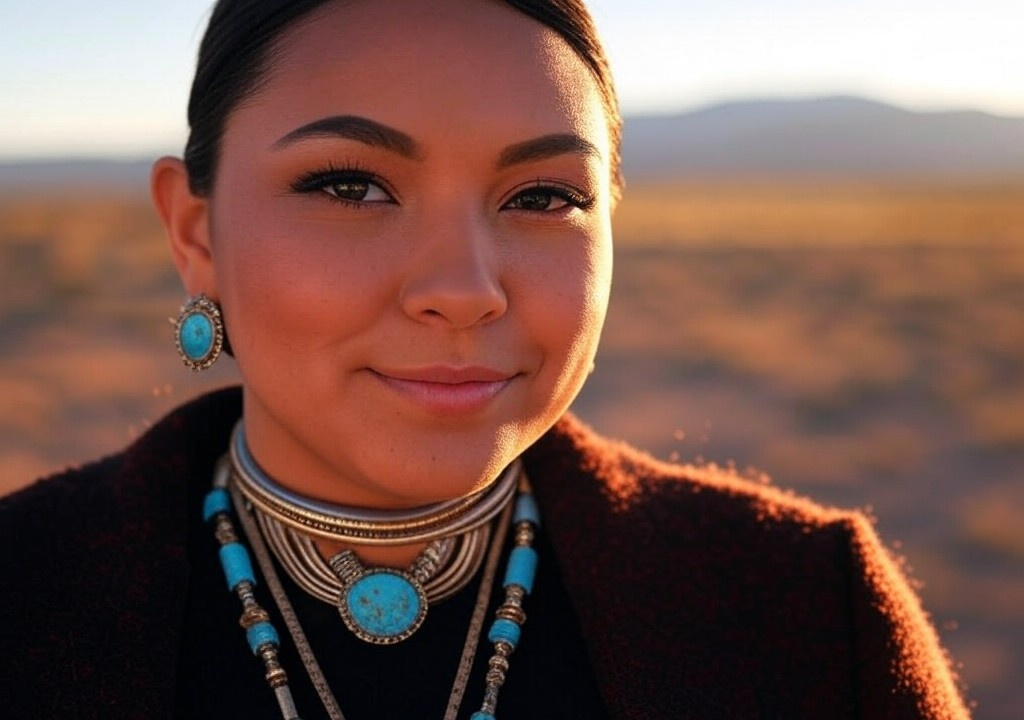The Hardest Piece I’ve Ever Written
There’s no easy way to start a story about grief. Nothing prepares you for the chasm it leaves, the way it sneaks into a quiet moment or hijacks a perfectly good day. And yet, grief is where I found myself when I sat down to write the hardest piece of my life.
It wasn’t about love, at least not in the way most of us usually think of it. It wasn’t about meet-cutes or the warm glow of a Sunday morning shared with someone you cherish. No, this was a love letter—to my grandmother, my nána, who had passed a few months earlier. I was tasked with capturing her essence, her impact, her story—and doing so in a way that would resonate with an audience who never met her. It was supposed to be part of an inspiring series on resilience. What it became was something entirely more raw and personal.
Let me tell you: writing about someone you love can feel like trying to sculpt fog. You blindly reach for details—her hands twisting dough for frybread, the flicker of her smile, the way she hummed old Navajo melodies—and try to pin them to the page. But grief has a strange side effect: it makes memories slippery.
It Was Supposed to Be Easy
When my editor approached me with the idea, I thought I had it under control. After all, I’d gotten through tougher assignments—a policy brief on conflicting land-use laws, a series of interviews with reluctant elders during my anthropology fieldwork. I’d even done my share of heartfelt writing about love: breakups, misunderstandings, and the joyful rediscovery of connection. But none of that prepared me for this.
The problem wasn’t just the heaviness of the subject. It was the pressure of doing her justice. How do you take someone as full of contradictions and humor and grit as my nána and package her into 1,500 neatly spaced words? More than that, how do you honor the parts of her the world didn’t often celebrate? For a woman who grew up herding sheep in the high desert—without electricity or running water until her twenties—she had a sharpness to her wit that could outshine the most sophisticated city dweller. And she taught me everything I know about love and resilience.
If you’ve ever tried to give words to someone who shaped you, you already know: the more you want to say something perfect, the harder it becomes. And oh, how I wanted to get this right.
A Love That Defied Translation
Návajo values meant everything to my nána. K’é—the deep sense of kinship and reciprocal care—was her compass. She didn’t talk about relationships the way we do today. There were no “red flags” or tweets about attachment styles. If she’d overheard someone lamenting being “ghosted,” she probably would have thought it involved an actual ghost.
And yet, every piece of advice she gave—whether spoken over the rattling of pots in her kitchen or in the silences we shared while watching the sunset—has shaped how I navigate love today. She didn’t believe love was something grandiose. For her, it showed up when someone chopped wood on a cold morning or shared the last piece of roasted mutton. Connection wasn’t about extravagance; it was about presence.
One of her favorite proverbs translates loosely to: “The land remembers everything you do. So will the people who care for you.” It was her gentle warning not to move selfishly in the world. To her, love wasn’t fleeting; it was etched into the very ground you walked together.
So how, I kept asking myself, do I possibly encapsulate all that? Writing about her felt like trying to thread a needle on a rollercoaster. Every time I sat down to type, my mind would wander to what she’d think if she read my words. Would she laugh at my dramatics, counsel me to "simplify it already," or shake her head because I’d gotten something wrong? I typed and erased so much that my laptop started to feel like the enemy. I considered quitting more times than I'd like to admit.
Writer’s Block…and a Little Help From Beyoncé
Grief wasn’t the only hurdle. I was facing a massive case of writer’s block—the kind that makes staring into the fridge feel more productive. The ghost of nána might’ve told me to roll up my sleeves and get practical, but I needed help. So, like any millennial grasping for comfort in uncertainty, I turned to Beyoncé. Specifically, her album Lemonade. If you’ve ever sat with the raw beauty of that project, you already know: it’s a siren call to our messy, human contradictions.
Listening to it on repeat, I was struck by something simple and profound: it wasn’t just about pain or triumph. It was about allowing all of it to exist—the beauty, the humor, the mess—without demanding it fit a specific mold. So I started writing messy too. I stopped trying to sanitize my grief. I wrote about her stubborn streak (she once refused to speak to an in-law for five years over an argument about sheep) and her kindness (she’d save the best chunk of peach cobbler “for later” but covertly slide it my way). I wrote about the way she'd laugh when someone fell asleep in her chair, like they were a child again. I wrote it all, uncensored.
Lessons in Building—and Letting Go
In the process of writing, I learned something unexpected about love itself. Love isn’t defined by the perfect, polished story we create in hindsight. It’s raw and incomplete, stumbling through the dark with hands outstretched. It lives in memories that make you laugh and cry at the same time, the moments that don’t need documentation to matter.
By the time I finished the piece, I knew it wasn’t perfect. It wasn’t flawless. But the imperfections were the point. Because that’s what love is, too: a little messy, thoroughly human, and deeply meaningful.
What My Hardest Piece Taught Me About Love
Writing that article taught me more about love than I expected. It reminded me that whether you’re writing about someone who’s passed or building a relationship in real time, the only thing that really matters is showing up—fully and honestly, with all the vulnerability that requires.
Here’s what I want you to take away:
- Love is in small gestures: the check-in texts, the last slice of cake, the impromptu road trips. It doesn’t have to look like a Nicholas Sparks novel—thankfully.
- Relationships, like stories, aren’t about perfection. They’re about persistence. Keep showing up, even (or especially) when it gets messy.
- You don’t have to capture someone entirely to honor them. Sometimes, the simplest details—the way they curled their hair or told the same joke twice—can tell a world of truths.
The hardest story I’ve ever written became the most significant because it wasn’t really about me at all. It was about her and the lasting imprint she left—on her family, her land, and me. I don’t know if my nána would’ve given my article her thumbs-up or a wry chuckle at my self-doubt, but I do know she would’ve appreciated that I tried. And if I’m lucky, readers took a little of her wisdom into their own lives too.
None of us get love perfectly. We fumble. We struggle. We start over. But the hardest parts? Sometimes, they’re the most transformative.




















